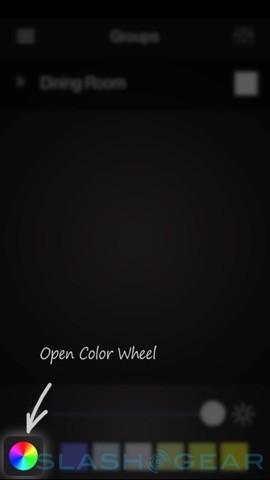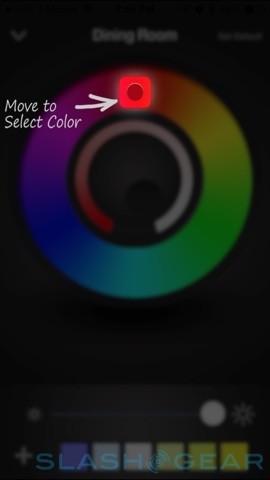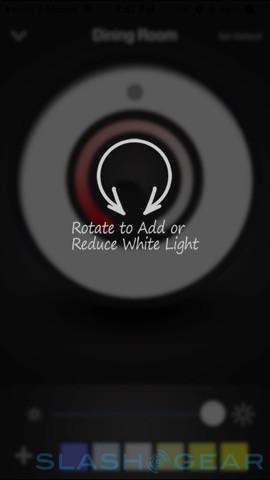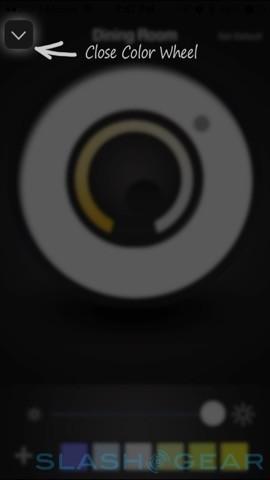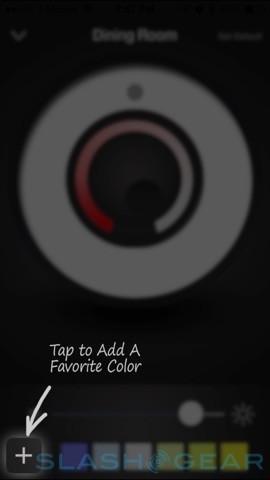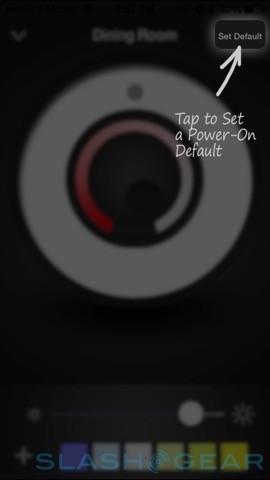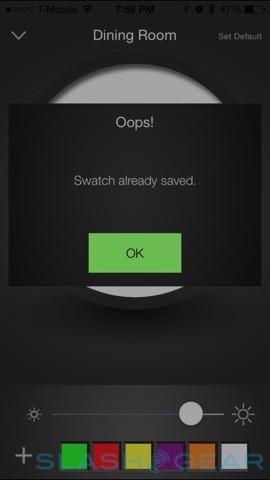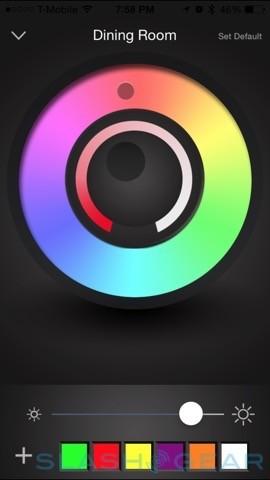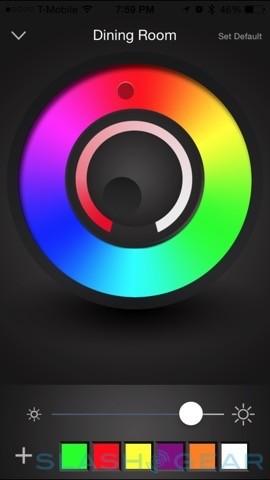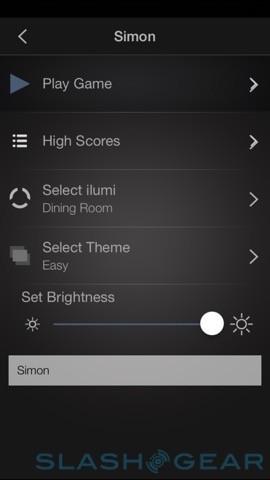Ilumi Smart LED Bulbs Review; Bluetooth Brains
In the connected home space, lighting has become rather dull. Several lightbulbs change color, and can react to an app; it's all fairly mundane at this point. Philips Hue is widely pointed to as the first domino in the rally, but it has limitations, like the need for a WiFi hub. Ilumi thinks it can change our minds about lighting, with their connected bulbs that also change colors and react to an app. In the face of big-name players, Ilumi may have got lighting right.
Hardware
Fist thing to note; these bulbs seem heavy. I wouldn't put these in a small, fragile fixture that could easily be tipped over.
The form-factor is nothing special. It's LED lighting, and hefty in both weight and size. Inside, another narrative takes control.
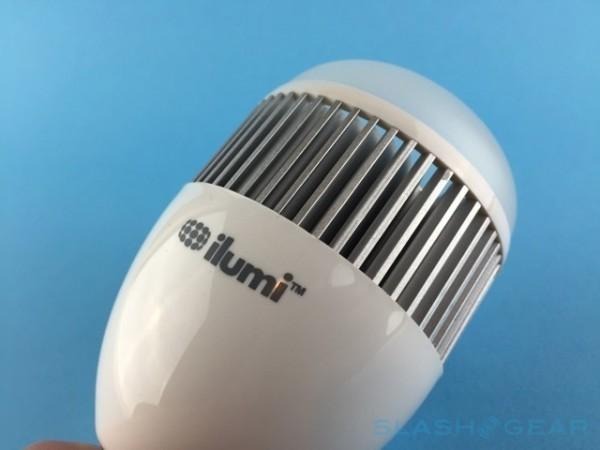
Rather than WiFi, Ilumi connect to you via Bluetooth. Once paired with your phone, the bulbs also find each other, creating a mesh network of sorts.
Ilumi bulbs also have a small amount of flash memory installed, which is used to remember your preferences and settings, even when the power is cut off to the bulbs for a short time.
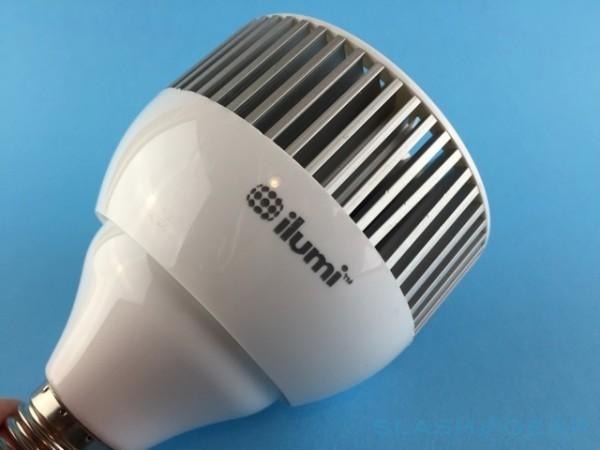
Software
The app is simply laid out, and pretty easy to figure out if you're going in cold. A slide-out menu gives you all the available features, and your first time with any of them (and the app itself) is met with all sorts or walk-throughs. As apps go, Ilumi's is really well done. Simple, easy to use, and powerful; it's easily the highlight of the overall experience.
If you have enough Ilumi bulbs, you can group them together as you see fit. I organized them by room, but you can do it any way you like.
Bouncing off of 'groups' are 'scenes'. You can create custom scenes of ambient lighting, or simply choose to light your home in a different hue. It's a deep layer of customization that you'll probably enjoy.
All settings can be saved, too, so once you create a scene you like, you can recreate it with a single tap later on.
Experiences come with presets like a vacation mode or music sync (a feature Hue just added), as well as a scene scheduling feature and circadian. Circadian is a setting for those who like to rise to natural lighting, or subscribe to the theory that lighting affects your body and mood. You can also play the age-old family favorite 'Simon' with Ilumi, which is just showing off, right?
Torch is another interesting setting, and may be Ilumi's killer feature. With Torch, you can set your lights to turn on as you approach, creating a string of them to — wait for it — light your path.
The Torch feature becomes really handy for those times your hands are too full to turn on lights, and can even be used to toggle a light on before you even step in the door. Using Bluetooth, your lights know when you're close, and Ilumi's mesh network means you only have to be close to one light before the rest come on.
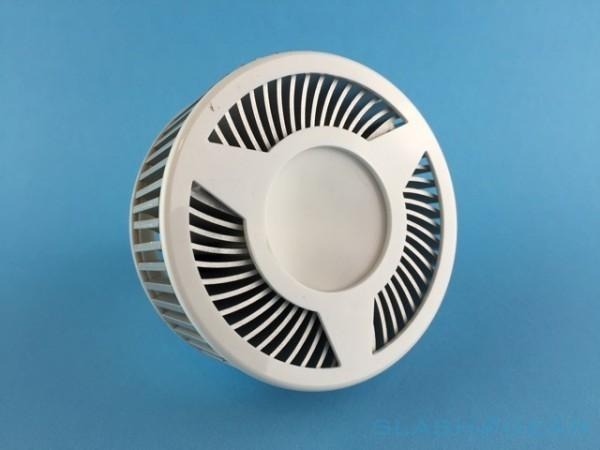
Use
Ilumi bulbs are among the handiest I've used. When they actually work as described.
Several times, the Ilumi app said the bulbs weren't connected (even when I was in range), which is understandable as they link via Bluetooth. Toggling the bulbs on and off with my phone seemed to alleviate the app's concerns, but it defeated a lot of the purpose with Ilumi.
If the bulbs lose a connection, how is 'Torch' supposed to work? That's Ilumi's killer feature in my eyes, and the loss of connection sidelined it many times (note Ilumi wasn't slow to connect via Bluetooth, Ilumi just seemed to give up on connecting). Again, toggling the bulbs on and off in the app seemed to help, but it won't do you any good if you're automating using proximity awareness.
The connection issues weren't constant, mind you. Still, it was present enough to make itself known. Connectivity issues can hopefully be remedied via an update.
Outside of that, Ilumi worked just fine. I controlled my lights via my phone, and there were more hues and balance points than I knew what to do with. The color wheel picker is sensitive and robust, and will not leave you wanting.
Simon is fun, but probably better to distract some kids while the adults chat. I do like scenes a lot more than I thought I would; initial set-up of a scene can be time consuming, but if you know what you want, it's amazing. I also like that you can save colors for better set-up of other bulbs. Find that perfect lavender on one bulb and setting the rest up was a breeze.
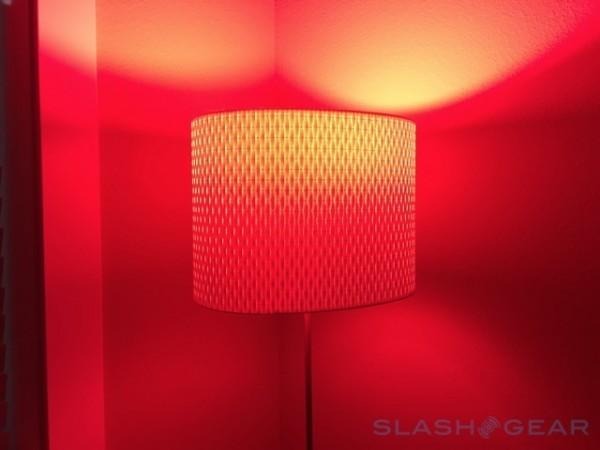
Verdict
There are two Ilumi bulbs — the Small A21 and Large Par30. They run$89.98 and $99.98, respectively. A21 is for lamps and other plug-in accessories, while the Par30 is for track lighting or other overhead needs. Both come in black or white.
At those price points, Ilumi is asking a lot to outfit a home. In a single room, you could be looking at $300 or more just for lighting. I really like the features of Ilumi, but the pricing seems a bit much (no step-donw pricing like Hue). The company says the lights last up to 20 years, mitigating the cost concerns on paper, but there are other issues at play for me.
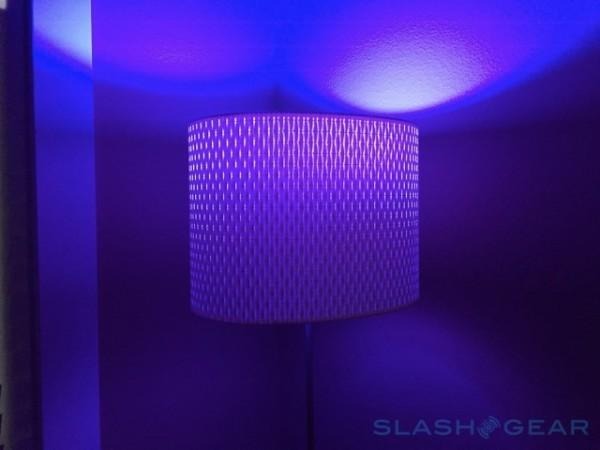
The connectivity issues weren't obnoxious, but I don't rely on the lights, either. If I did, the inability for Ilumi to light my home up as I walked near the front door may be of concern. Torch is as much a safety feature as it is a neat trick.
Over and over, I'm faced with connected home products that operate as island nations. Ilumi is really good at what it promises, and I like it a lot, but there is no existing platform to rely on. No Nest, no SmartThings, no Wink — we don't even know if it will support HomeKit (hopefully Ilumi will with Broadcom hardware at some point; Wink already does).
If Ilumi won't contribute to whole-home automation, it won't last the test of time. Integration might come, but there's no reason it shouldn't be available now. I'll consider it an effect of Bluetooth instead of WiFi for connectivity, but something has to give.
For the price, it's early days for me to suggest you cannonball on Ilumi for your home. I love the simplicity of Ilumi in terms of set-up and in-app use, but I need to see it work with a solid platform and offer some sort of guarantee on lifespan ("up to" 20 years is a big gamble, and you're spending a lot of cash; Ilumi has a two-year warranty, but that falls short for me) of the hardware before I can recommend it as fervently as I'd like to.




